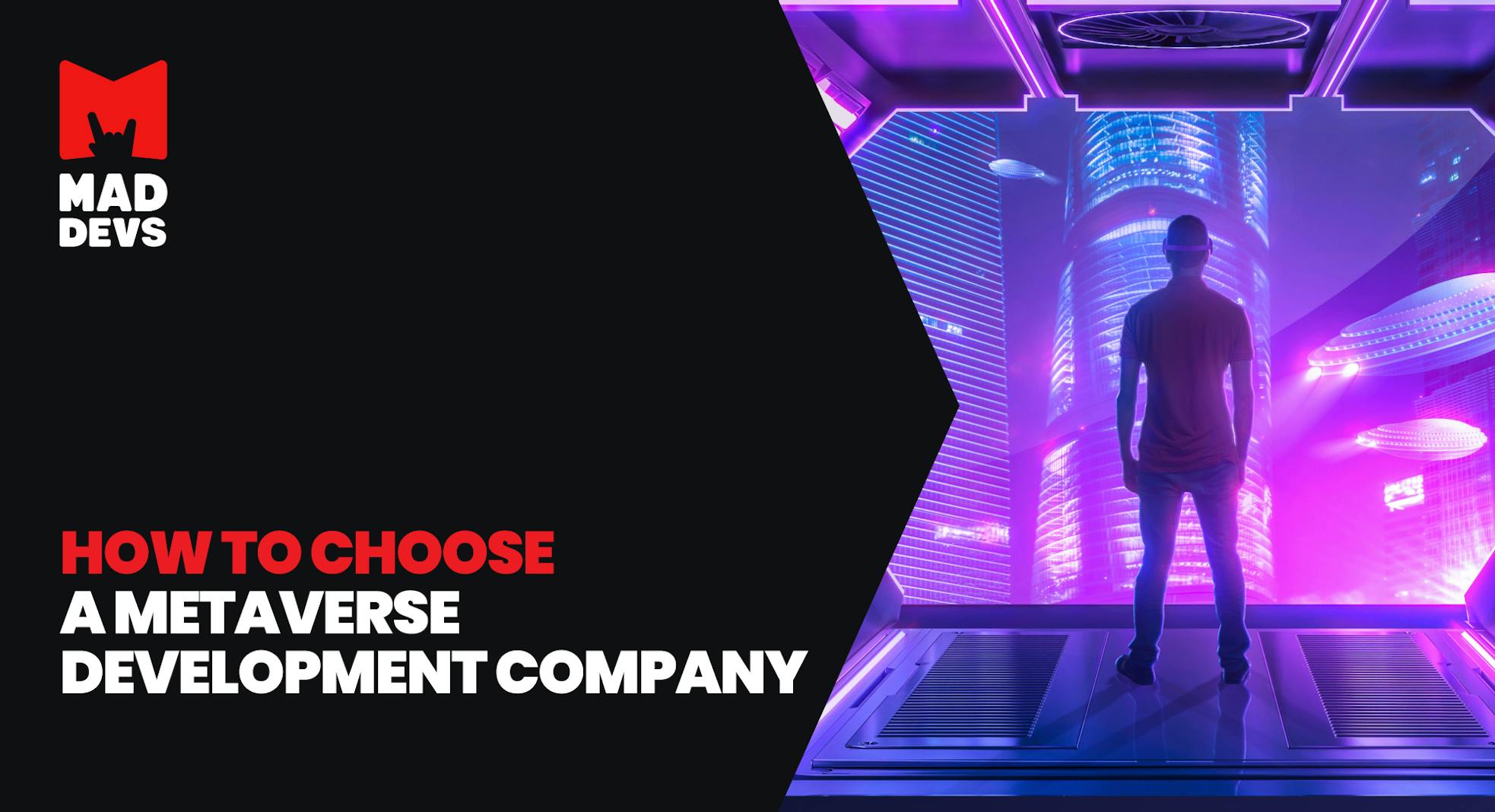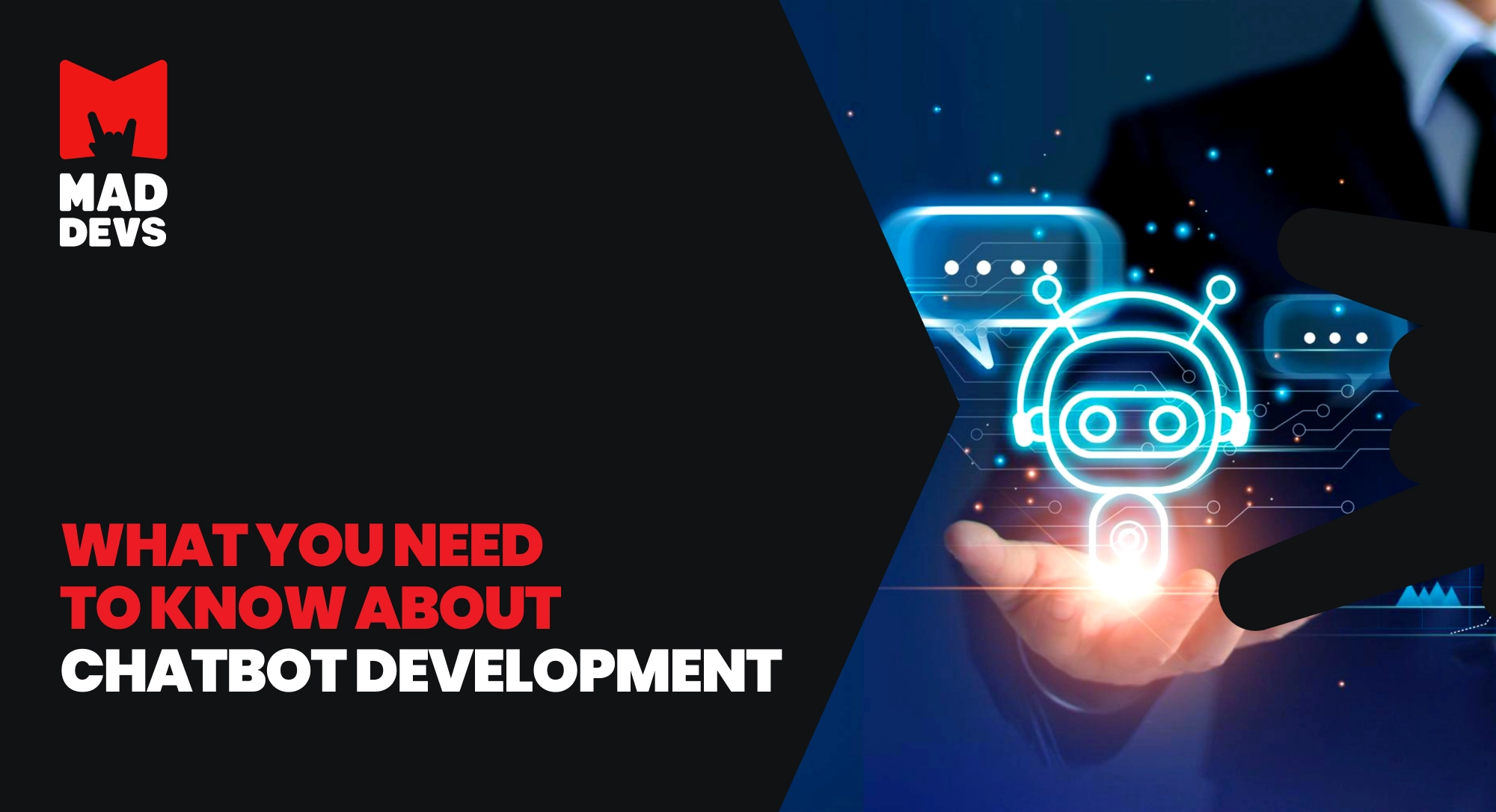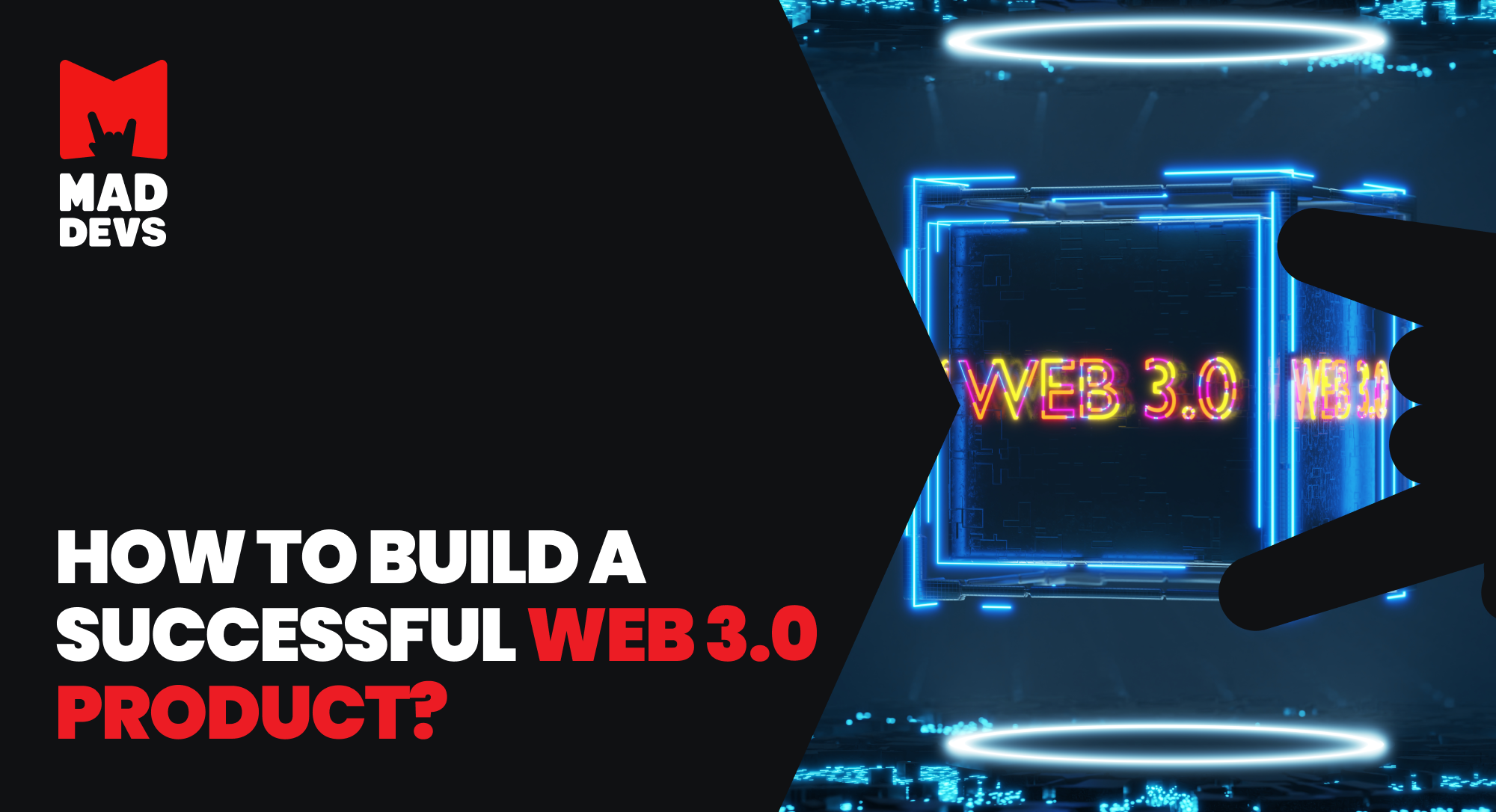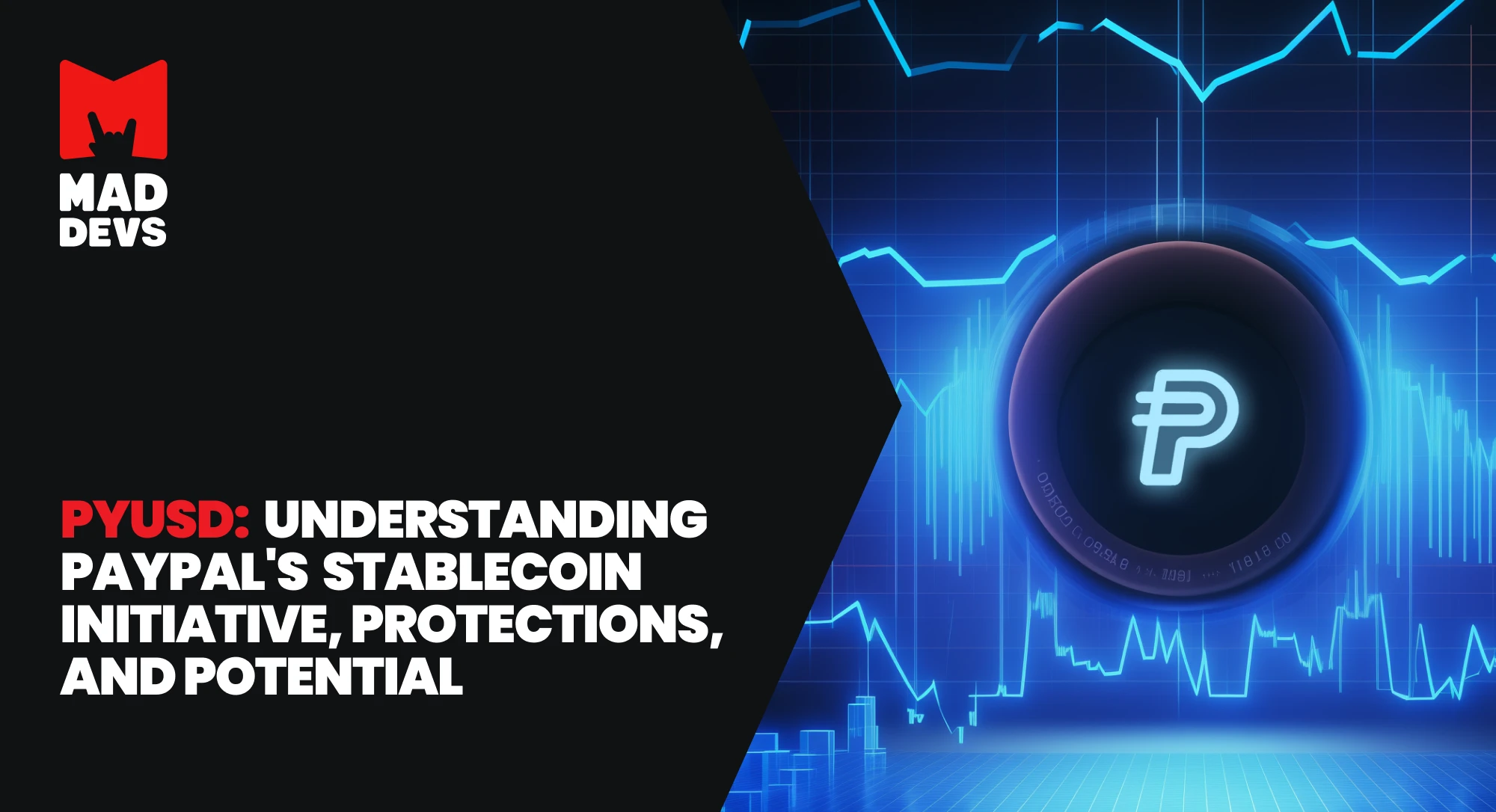The metaverse represents a new frontier in digital innovation, transforming the way we interact, connect, and conduct business. However, choosing the right metaverse development company can be daunting and fraught with unique challenges. With this guide, you can confidently navigate the complexities of metaverse development, pick the right team and technical stack, and embark on a journey to shape the future of digital interaction.
Why do brands and businesses need the metaverse?
The metaverse is a collective, virtual three-dimensional (3D) space in which users are embodied as avatars. It can also encompass additional 3D elements integrated into the physical world. These environments persist and develop over time, shaped by user choices and interactions. Despite initial associations with dedicated gamers and technology geeks, the metaverse is a base for a fresh digital economy. In this evolving landscape, users will have the capacity to generate, purchase, and trade, transforming the way economic transactions occur.
According to Statista, in 2022, the global metaverse market was approximated at 65.5 billion U.S. dollars. It is projected to increase to 82 billion U.S. dollars in 2023 and experience a significant surge, reaching 936.6 billion U.S. dollars by the year 2030.
Metaverse types and trends
Foremost, we should understand the main types of metaverse. It will help to bring light to emerging trends in these spaces. Types of metaverse:
Virtual Reality (VR) Metaverse
This type offers fully immersive experiences in entirely virtual environments. Users engage through VR headsets and controllers, navigating and interacting within entirely artificial digital worlds.
Augmented Reality (AR) Metaverse
AR blends digital elements with the physical world, enhancing real-life environments. Users access these experiences through smartphones or AR glasses, where digital overlays integrate seamlessly with their surroundings.
Hybrid Metaverse
A combination of VR and AR, the hybrid metaverse merges virtual and real elements. It integrates virtual content into the physical world and vice versa, offering a versatile and dynamic user experience.
A crucial aspect of the metaverse is its experimental nature. Every participant adding to the metaverse brings their distinct contributions, resulting in an evolving landscape. The final form and functions of the metaverse remain uncertain, with its evolution being an ongoing discovery. This is partly due to the metaverse's expansive and limitless 3D landscape that lacks well-defined boundaries. Furthermore, the metaverse serves as a social space where individuals share unique collective experiences. As the metaverse develops, the possibilities for transformation and improvement are virtually boundless.
Now, let’s look at the currently emerging trends.
Avatar technology
Photorealistic avatar technology is a smart mix of artificial intelligence (AI) and computer-made images. It's used to create virtual versions of users that look and act real. This tech combines computer graphics, motion tracking, facial recognition software, and sophisticated algorithms to construct 3D avatars that can be used in games, animations, VR/AR, and the metaverse.
Technologies like Ready Player Me and Zepeto let us make avatars that we can use in different virtual worlds, not just one specific place. This means we can explore various virtual places with the same avatar.
Web3
Web3 marks the next step in internet evolution, built on a decentralized setup. It's a platform where people can engage securely, without trust or permission. This novel internet way ditches middlemen, making online interactions safer, private, and smoother. The key to Web3 is decentralization. Instead of one center controlling everything, power and resources are spread across many points, ensuring fairness and trust. This approach keeps systems from being dominated by any single point, letting users connect in a secure and trustworthy space.
Furthermore, it empowers users to access web services and apps without depending on a central authority. This is where the idea of NFTs in the metaverse comes into play.
AR/VR
The eternal popularity of AR/VR lies in higher interest in digital content to draw in more consumers. As this demand grows, industries have seen a revenue uptick. Businesses can now anticipate a revenue boost, thanks to the increasing appeal of AR/VR.
AR and VR have enriched customer experiences, letting brands create lasting impacts. Extended Reality (XR) tech lets users explore products or services virtually, enabling customization. Virtual reality's rising fame is set to drive more brands toward VR-based marketing of their offerings.
Apple, Google, and Microsoft are also introducing new VR/AR/MR headsets, contributing to the expanding landscape of VR/AR technologies. Interestingly, a tech startup based in Vermont is taking things a step further—you can even experience smells. They've created a black cartridge that attaches to a VR headset and covers the nose. This cartridge holds vials of scents created in their OVR lab.
New marketing channels
Global marketing agencies now can harness the metaverse's capabilities for brand promotion from a fundamentally novel angle. Immersive technologies present exciting avenues for presenting products and services at their finest and even enabling potential buyers to interact with them in an engaging 3D environment that's risk-free, and enjoyable. By immersive technologies, we mean AR and mixed reality (MR).
The metaverse has significantly boosted gaming equipment sales, spanning computers, VR hardware, and gaming consoles. Businesses can now anticipate a revenue boost driven by the popularity of VR and AR. This can be achieved through strategic collaborations with game developers, hosting gaming events, and crafting branded merchandise. As evident, we can take successful proto-metaverses like Fortnite and Roblox. When integrated with blockchain technology, players can engage in the play-to-earn model by trading virtual items to expand players' experiences and potential earnings.
Corporate sphere innovations
Metaverse technology is finding practical applications in the corporate sphere, particularly in areas such as training, onboarding, and various other tasks. It offers innovative solutions for teams to work remotely while staying connected with colleagues and maintaining an interactive creative process.
For instance, Accenture, a prominent consulting firm, has established The Nth Floor, a metaverse environment featuring replicas of actual offices. This platform allows employees, including new hires, to engage in numerous HR-related activities within this virtual realm.
Also, virtual spaces in BMW's augmented reality labs, used for designing and prototyping new products, are gaining traction.
Lastly, it is worth mentioning the large deals and investments that have been registered recently in the development of the metaverse.
Great numbers in metaverse development
Several major companies are currently operating within the metaverse or actively working on developing related projects. Here are they:
- Meta - According to the financial report, Meta revealed that its Reality Labs division, which houses the company's virtual reality initiatives and projects, invested $13.72 billion for the entire year of 2022.
- Microsoft - Microsoft has announced its intention to acquire Activision Blizzard for a staggering $68.7 billion. This deal marks the largest in the history of the gaming industry, as major global technology players assert their positions in the evolving landscape of virtual experiences.
- Google - Alphabet, the parent company of Google, is one of the most esteemed tech giants globally and is making strategic investments in Metaverse-focused initiatives. In an interview with Bloomberg, Google's CEO stated that he invested $39.5 million into Metaverse projects.
- Nvidia - Nvidia's stock reached an all-time high as analysts from Wells Fargo increased its price target by around 30%. They highlighted that Nvidia, a dominant player in video game chips, is in a favorable position to contribute to developing the metaverse.
- Epic Games - In April 2022, the company secured a substantial investment of $2 billion from Sony Group Corporation and Kirkbi, the parent company of the LEGO Group. This infusion of funds played a significant role in elevating the company's valuation to an impressive $31.5 billion.
Before going directly to the details of development, it is important to emphasize the difference between traditional or more familiar software development and the new one related to virtual reality.
Difference between metaverse development and traditional development
For a while now, we've been using Web 2.0, which is called traditional development. This is about creating software and apps that work on different devices like phones, computers, and tablets. It's all about making cool interfaces and things for people using those devices.
But now, there's something new called the metaverse or Web 3.0. This is different from traditional development. The virtual landscape shaped through metaverse development remains accessible through diverse device platforms. On the other hand, metaverse development aspires to forge virtual experiences accessible to individuals worldwide, regardless of location. Metaverse development involves using 3D graphics, game engines, and advanced tools that are not commonly used in traditional development.
Metaverse custom development
Basically, the metaverse is made up of 7 layers. Here's an easy-to-understand breakdown of them:
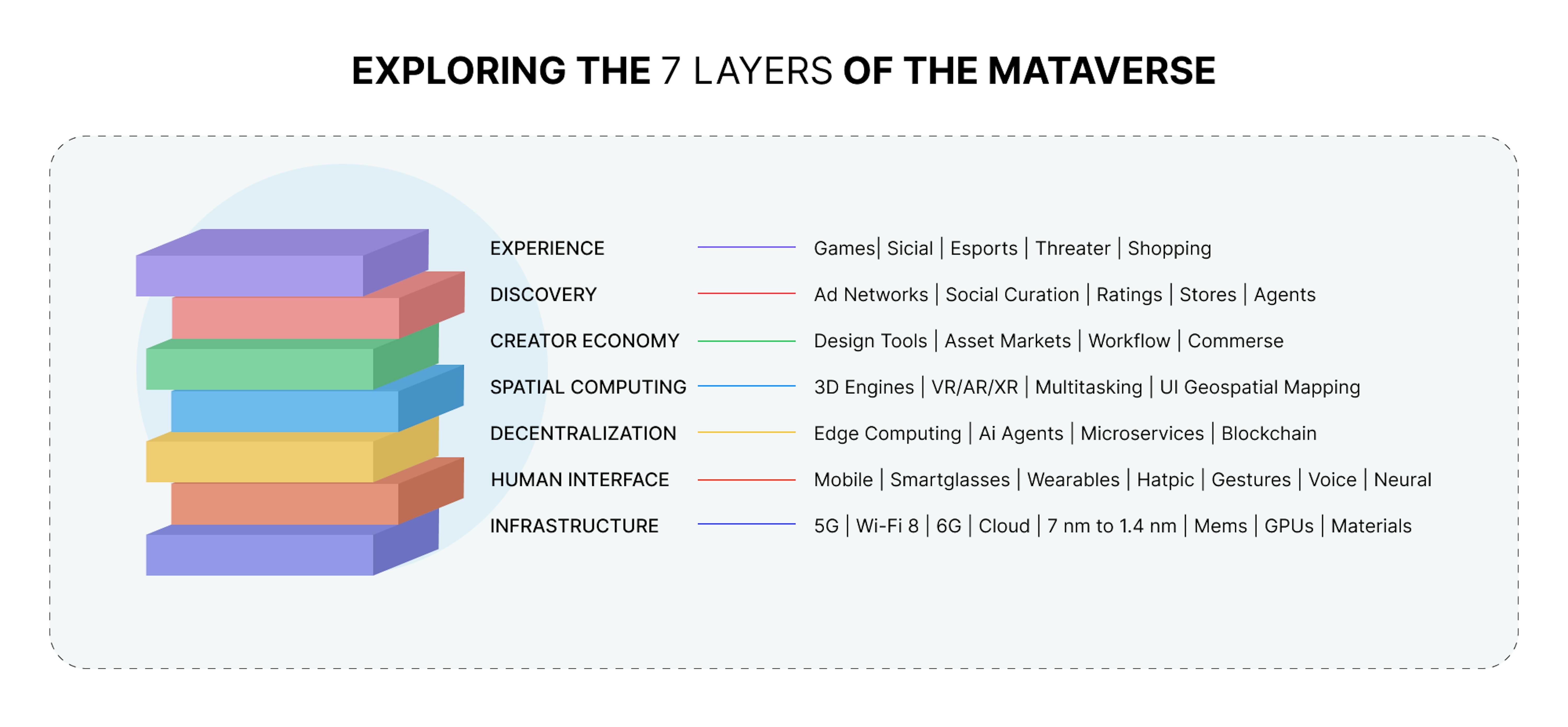
- Experience
Where users engage in experiences, activities, and interactions within the metaverse. It includes entertainment, education, work, leisure, and other forms of engagement that the metaverse offers. - Discovery
The layer that focuses on human interaction and collaboration within the metaverse. This includes communication tools, social networks, and ways for users to connect, communicate, and form relationships. - Creator economy
The digital objects, assets, and elements that populate the virtual environments. This can range from simple 3D models to complex interactive objects, vehicles, buildings, and more. - Decentralization
The layer that deals with the economy within the metaverse. This includes virtual currencies, trading platforms, virtual marketplaces, and ways for users to buy, sell, and trade digital assets. - Spatial layer
The virtual spaces and environments within the metaverse where users can navigate, interact with objects, and engage with others. This includes everything from virtual worlds and landscapes to individual rooms and settings. - Human interface
The real-world hardware and devices to access and interact with the metaverse, such as VR headsets, AR glasses, and haptic feedback devices. - Infrastructure
The underlying technological infrastructure that supports the metaverse, including servers, data centers, and high-speed networks that enable seamless interactions and data processing.
For those intrigued by the idea of developing their metaverse, it's important to recognize several essential components of the metaverse.
VR/AR
VR lets users dive deep into a made-up world, while AR adds digital stuff to the real world. Both of these are really critical for making a metaverse that's super interactive and feels real.
This entails familiarity with both the hardware and software essential for crafting and visualizing 3D landscapes. Moreover, proficiency in programming languages and tools is essential for crafting interactive applications.
Blockchain technology
Within the metaverse, blockchain technology can serve multiple purposes, encompassing the creation of digital assets, the administration of ownership rights, and the facilitation of user transactions. This involves understanding smart contracts, decentralized apps (dApps), and cryptocurrency.
Cloud computing
Cloud computing plays a vital role in big virtual worlds. It lets you handle huge amounts of data and stuff needed for a metaverse with many users. Cloud tech also allows people to work together and talk in real-time, which is crucial for making a social and interactive metaverse.
To make your own metaverse, knowing about cloud computing is important. This means understanding cloud storage, computing, and networking, which help support big virtual spaces.
AI
AI is a big deal for the metaverse. It helps make virtual characters seem real and act smart. It can also look at what users do and give them customized experiences. Plus, AI can make clever helpers to guide users in the virtual world.
To make your metaverse, you should know about how machine learning, natural language processing, and computer vision work in the virtual world.
Payment gateways
To make transactions happen in the metaverse, you require payment gateways like PayPal and Stripe. These help with buying and selling stuff. Also, cryptocurrency wallets like Coinbase and MetaMask are significant. They let users keep and control their digital stuff in the metaverse.
Creating a metaverse is a complex and multidisciplinary endeavor. Depending on the features you want to include in your metaverse, you'll likely need a team with expertise in various areas like programming, design, AI, VR, and blockchain technology. If you are on the lookout for a well-skill-developed team, then get in touch with us!
Crafting the ideal metaverse development team
Metaverse requires a diverse and skilled team to handle various aspects of development. Here's how you can assemble your ideal metaverse development team:
- Full-stack programmers are proficient in С#, Java/C++. They will handle both front-end and back-end development, ensuring smooth user interactions and data management.
- Unity/Unreal engine developers are experts in using Unity, Unreal, and CryEngine to build and optimize the metaverse's virtual environments and interactions
- Independent database specialist is responsible for designing and implementing a robust and secure database architecture for storing metaverse data.
- Blockchain developer develops and maintains the decentralized wallet and integrates blockchain technology for secure transactions within the metaverse.
- Decentralized dApp Producer creates decentralized applications (dApps) that enhance user interactions and experiences within the metaverse.
- AI specialist develops and implements AI algorithms that power intelligent interactions and behaviors within the metaverse.
- Security expert ensures the metaverse is secure from potential threats, data breaches, and cyberattacks.
- QA/Testers conduct testing of the metaverse to identify and address bugs, glitches, and usability issues.
- Technical writer creates documentation and guides for users and developers to understand and navigate the metaverse.
- UI/UX developer focuses on creating an intuitive and visually appealing user interface and experience.
- 3D modelers are skilled in using tools like Blender and 3ds Max to create 3D assets, objects, characters, and environments that populate the metaverse.
- Project manager oversees the entire development process, and manages tasks, timelines, and resources.
Understanding the costs
The average cost falls within the range of $30,000 to $300,000, guaranteeing a customized solution aligned with your specific business objectives.
Different sources provide the following costs by industries:
| Industry | Metaverse Development Costs |
|---|---|
| Online gaming | ≈$25,000 to $400,000 |
| Social media | ≈$25,000 to $370,000 |
| Real estate | ≈$15,000 to $300,000 |
| eCommerce | ≈$50,000 to $500,000 |
Let’s break down the example of an abstract metaverse game development company.
The average cost of developers rates can range anywhere from $25 per hour to $150 per hour. Certain development firms that take on metaverse projects might even charge higher rates.
Furthermore, the total expenses for creating a metaverse app are contingent upon the scope of the gaming application. Some games have necessitated years of development, whereas others, developed by a single developer, have been completed in a matter of weeks.
On average, developing a relatively simple metaverse gaming app can take up to 6 months. Taking into account a team of 5 members, each dedicating 40 hours of work per week, the cost of producing the metaverse app would be:
- Pricing Range: $25–$150 per hour
- Number of Team Members: 5
- Weekly Hours Contributed: 40 hours
- Total Hours Contributed: Weekly hours × Number of Team Members × Number of weeks in a month × Number of Months = 40 × 5 × 4 × 6 = 4800 hours
- Lowest Development Cost: $25 × 4800 = $120,000
- Highest Development Cost: $150 × 4800 = $720,000
Important: When estimating the comprehensive cost of constructing the entire metaverse virtual world, it's important to factor in an additional 20% of the total development cost for annual maintenance and upgrades. This ongoing allocation ensures the metaverse's continued functionality, enhancement, and evolution over time.
Tips to choose the right metaverse development company
- Define your requirements
Clearly outline your project's objectives, scope, features, and desired outcomes. This will help you communicate effectively with potential development companies and allow them to provide accurate proposals. - Expertise and experience
Look for companies with a proven track record in metaverse development. Assess their portfolio to ensure they have experience working on similar projects and have delivered successful outcomes. - Technology stack
Verify that the company is proficient in using the necessary technologies for metaverse development, such as AR, VR, blockchain, and more. A diverse tech stack ensures they can cater to your project's requirements. - Innovative approach
Metaverse development is a cutting-edge field. Choose a company that demonstrates innovation, creative thinking, and a willingness to explore new possibilities. - Collaboration and communication
Effective communication and collaboration are essential for the success of any project. Ensure the company is responsive, transparent, and willing to involve you in the development process. - Customization and scalability
Your metaverse project should be tailored to your specific needs and have the potential to scale as your requirements evolve. Confirm that the development company can accommodate customization and scalability. - Client references and reviews
Reach out to previous clients or read reviews to gain insights into the company's reliability, work quality, and overall client satisfaction. - Security and privacy
Metaverse applications often involve sensitive user data. Ensure that the company follows robust security practices and adheres to data privacy regulations. - Cost transparency
Clearly understand the pricing structure, payment milestones, and any potential additional costs. Ensure that the company provides a detailed breakdown of the expenses. - Support and maintenance
After the development is complete, ongoing support and maintenance are essential. Clarify the company's approach to post-launch support and updates. - Legal agreements
Have well-drafted contracts in place that outline project scope, timelines, payment terms, intellectual property rights, and any other relevant legal aspects. - Local vs. remote
Decide whether you prefer working with a local company or are open to collaborating with a remote team. Both options have their pros and cons.
Top metaverse development companies
Metavesal

Metavesal is an enterprise-oriented metaverse-as-a-service provider, offering ready-to-use metaverse spaces for rental. It caters to diverse needs, such as virtual meetings, events, conferences, NFT exhibitions, product launches, and e-commerce setups. The company provides various pre-designed metaverse environments, each accommodating a specific number of visitors, from 50 in smaller meeting areas to 200 in larger music concert spaces.
Metavesal delivers lifelike visuals, real-time communication, 3D surroundings, and customizable avatars for personalized virtual experiences. The platform offers nine distinct types of spaces, including E-commerce setups, music concert venues, auditoriums, offices, NFT art galleries, exhibition islands, and more. This comprehensive approach allows enterprises to seamlessly host engaging events and activities in the metaverse, eliminating the need to develop their own metaverse projects.
LeewayHertz

LeewayHertz, a software development company with over 14 years of experience, specializes in enterprise and Web3 solutions. They excel in services ranging from Blockchain and Artificial Intelligence to Augmented Reality, offering comprehensive solutions for business transformation. As a leader in Web3, LeewayHertz pioneers metaverse development services, including integration, gaming spaces, rentals, 3D avatar creation, and application development. With a skilled team of 250+ full-stack developers well-versed in metaverse tools, they create tailored metaverse solutions. They incorporate decentralized networks, smart contracts, NFTs, and crypto wallets, ensuring project success through maintenance and upgrades.
With a skilled team of 250+ full-stack developers well-versed in metaverse tools, they create tailored metaverse solutions. They incorporate decentralized networks, smart contracts, NFTs, and crypto wallets, ensuring project success through maintenance and upgrades.
Accenture

Accenture, a prominent player in Web3 and metaverse technologies for almost 15 years, stands out as a top metaverse services and solutions provider. Its offerings encompass a wide range of advanced Web3 solutions, including NFT marketplaces, blockchain development, extended reality, 3D commerce, and complete metaverse solutions. The company prides itself on its adaptability to cater to diverse project needs and use cases.
With a portfolio of more than 600 patents, Accenture is supported by a team of approximately 800 skilled professionals who are equipped to guide businesses through their tailored metaverse ventures.
Aetsoft

Since 2014, Aetsoft has been operating as a software development company dedicated to enhancing enterprise efficiency through blockchain and digital transformation solutions. They specialize in blockchain development, NFT and DeFi development, AI, machine learning, Robotic Process Automation (RPA), and Big Data services, all aimed at facilitating business automation.
With a track record of successfully completing over 50 blockchain projects, Aetsoft has also established expertise in metaverse development. Their metaverse services encompass NFT and marketplace development, digital asset and avatar creation, game development, and the establishment of decentralized platforms.
Spatial

Spatial, established in 2016, is a metaverse company focused on aiding creators and brands in crafting their own unique spaces within the metaverse. Specializing in workplace collaboration, Spatial offers a robust array of features. It empowers users to fashion tailored metaverse landscapes with geographical facets, flora and fauna, and weather dynamics.
Spatial's metaverse serves various purposes, serving as a hub for real estate and NFT-related events, facilitating virtual meetings in office-like settings, or simply offering spaces for leisure. These resultant public domains can accommodate up to 50 participants. Additionally, users can capitalize on their 3D virtual spaces by converting them into NFTs or leasing/selling them to others.
Wrapping up
The metaverse represents the future, proofed by substantial investments from renowned tech giants like Meta and Microsoft. The metaverse presents a promising avenue for businesses to craft novel and imaginative customer experiences.
Mad Devs presents an extensive array of exceptional custom development services and consulting, enabling businesses to navigate this thrilling emerging technological trend.
Book a free consultation today to delve deeper into the possibilities!

